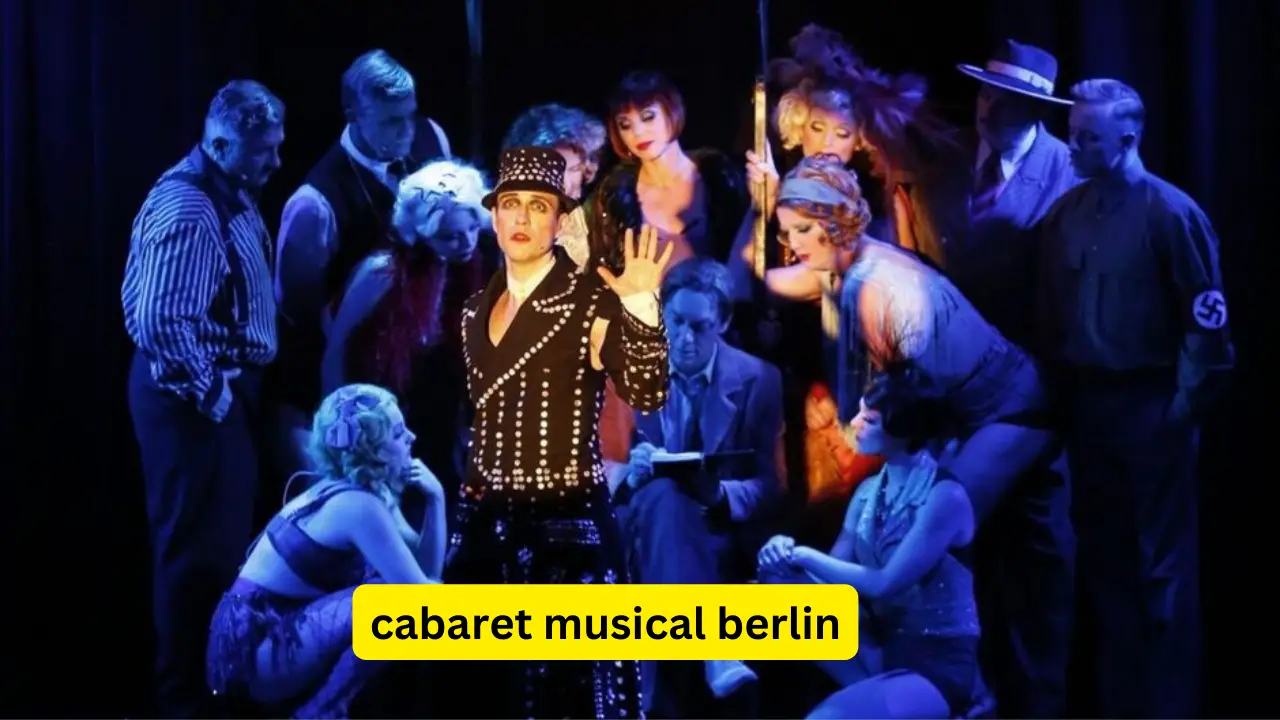
The Allure of "Cabaret" Musical in Berlin
The “Cabaret” musical transports audiences to the dazzling yet shadowy world of Berlin in the 1920s. This era, often referred to as the Golden Twenties, is immortalized through the story of the carefree nightclub singer Sally Bowles. As one of the most iconic musicals, “Cabaret” not only captures the essence of a vibrant city but also delves into the social and political undercurrents of the time. The Allure of “Cabaret” Musical in Berlin
A Glimpse into the Golden Twenties
The 1920s in Berlin were a time of cultural renaissance. The city was known for its nightlife, artistic freedom, and a thriving cabaret scene. “Cabaret” brilliantly captures this atmosphere, presenting a world where music, dance, and hedonism flourish amidst political upheaval. The musical is set in the Kit Kat Klub, a decadent nightclub where Sally Bowles performs, embodying the spirit of the era.
The Story of Sally Bowles
At the heart of “Cabaret” is Sally Bowles, a young English singer who finds herself entangled in the nightlife of Berlin. Portrayed as a free-spirited and vivacious character, Sally’s life is a series of performances and romantic entanglements. Her relationship with the American writer Cliff Bradshaw forms the crux of the story, set against the backdrop of a city on the brink of monumental change.
Berlin: The City of “Cabaret”
Berlin’s reputation as the city of “Cabaret” is well-earned. The musical has played a significant role in cementing Berlin’s image as a hub of artistic and cultural dynamism. The city’s rich history and its transformation during the 1920s are intricately woven into the narrative of “Cabaret,” making it a love letter to Berlin’s past.
Iconic Musical Numbers
“Cabaret” is renowned for its memorable musical numbers, each capturing a different facet of the story and the characters. Songs like “Willkommen”, “Maybe This Time”, and the titular “Cabaret” are not only integral to the narrative but also showcase the musical’s ability to convey deep emotions through song and dance.
- “Willkommen”: This opening number sets the tone for the musical, welcoming the audience to the Kit Kat Klub and introducing them to the world of cabaret.
- “Maybe This Time”: A poignant solo by Sally Bowles, this song reflects her hopes and dreams, offering a glimpse into her vulnerability.
- “Cabaret”: The show-stopping final number, where Sally affirms her love for the cabaret life, despite the chaos around her.
Political and Social Undertones
While “Cabaret” is celebrated for its glamorous portrayal of Berlin’s nightlife, it also tackles the darker aspects of the time. The rise of the Nazi regime and the societal changes it brought are subtly interwoven into the storyline. The musical serves as a commentary on the dangers of political apathy and the impact of radical ideologies on everyday life.
The Legacy of “Cabaret” in Berlin
“Cabaret” continues to be a beloved musical in Berlin, with numerous productions staged in the city over the years. The story of Sally Bowles and the Kit Kat Klub resonates with audiences, offering both entertainment and a historical reflection. The musical’s enduring popularity speaks to its ability to capture the spirit of Berlin and the timeless nature of its themes.
Experiencing “Cabaret” in Berlin
For those visiting Berlin, attending a performance of “Cabaret” is a must. The city’s theaters, known for their rich history and architectural beauty, provide the perfect setting for this iconic musical. Whether you are a longtime fan or new to the world of “Cabaret,” experiencing it in Berlin offers a unique and immersive glimpse into the Golden Twenties.
Conclusion
The “Cabaret” musical is more than just a story; it’s a celebration of Berlin’s rich cultural heritage and a poignant reminder of the city’s complex history. Through the lens of Sally Bowles’ life and the vibrant yet turbulent world of the Kit Kat Klub, “Cabaret” captures the essence of the Golden Twenties, making it a timeless classic that continues to enchant audiences.






